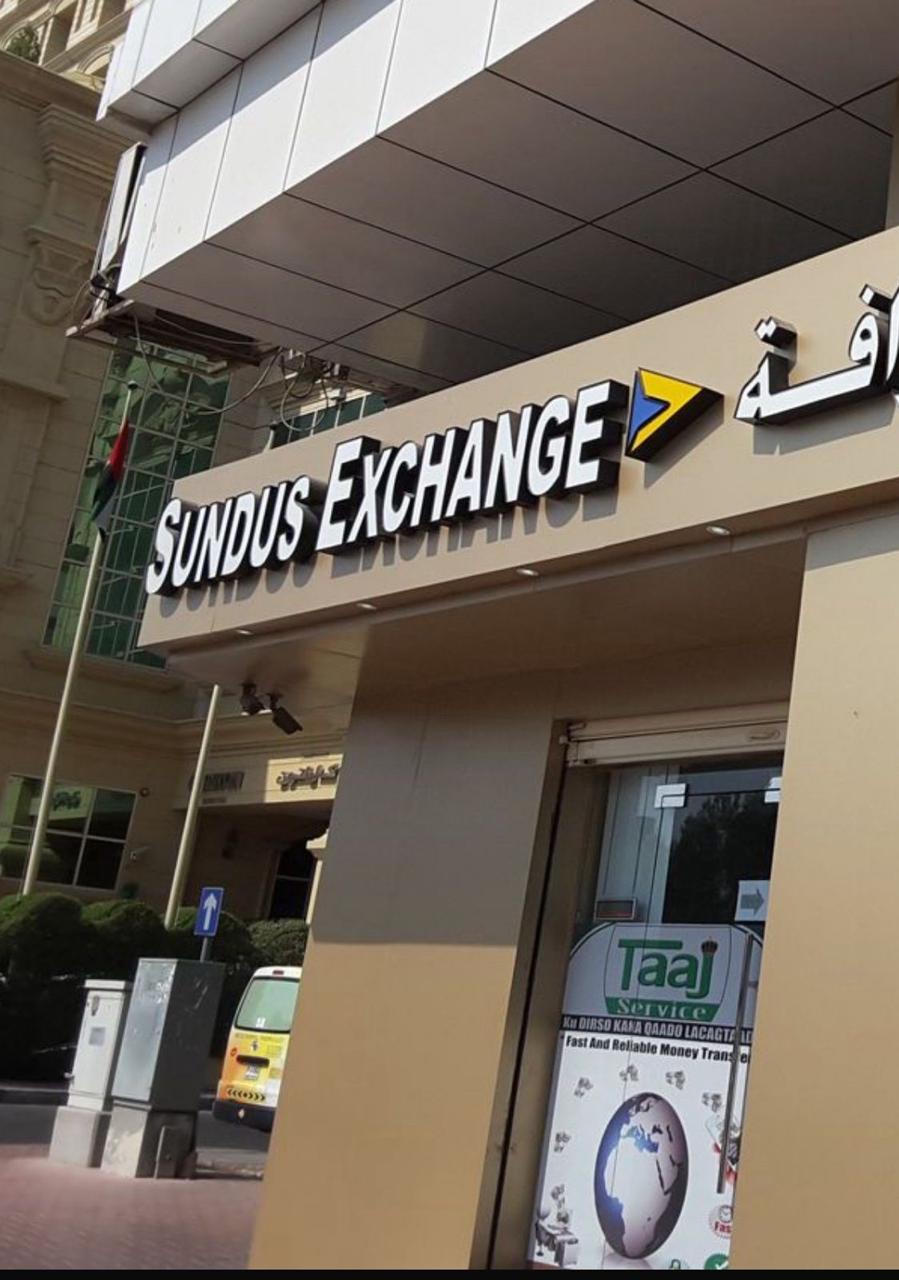NAIROBI, Kenya, June 17 – The United Arab Emirates has revoked the licence of Sundus Exchange and imposed a fine of AED10 million (about Sh400 million) for violating anti-money laundering (AML) and counter-terrorism financing regulations.
The Central Bank of the UAE (CBUAE) announced the move as part of a broader crackdown on financial misconduct and efforts to align with global AML/CFT standards.
Sundus Exchange, which had operational ties with Taaj Money Transfer and served East African corridors including Kenya, Ethiopia, and Somalia, has also been removed from the UAE’s list of licensed exchange houses.
According to the CBUAE, Sundus failed to comply with Federal Decree Law No. (20) of 2018, particularly on key provisions aimed at curbing money laundering and the financing of terrorism.
The action followed extensive examinations that revealed breaches of the country’s AML/CFT framework and related regulations.
Sundus collaborated with Taaj on remittance and currency exchange services between the Gulf region and the Horn of Africa.
Sources say other firms with similar cross-border financial operations could now face heightened regulatory scrutiny or potential closure.
“The CBUAE will continue to work to ensure that all exchange houses, their owners, and staff abide by UAE laws, regulations, and standards to safeguard the integrity of the country’s financial system,” the regulator said in a statement.
Ripple Effects in East Africa
The closure could disrupt remittance flows to East Africa, particularly for migrant families in Kenya, Ethiopia, and Somalia who rely heavily on money transfer operators linked to the Gulf region.
While regulators in Kenya and Ethiopia have yet to issue formal responses, experts anticipate intensified compliance reviews and risk assessments across financial institutions in the region.
Kenya Responds with New AML Law
The development comes just days after Kenyan President William Ruto signed into law the Anti-Money Laundering and Combating of Terrorism Financing Laws (Amendment) Bill, 2025.
The law is seen as a critical step in strengthening Kenya’s financial system following the Financial Action Task Force (FATF) grey listing in February 2024 and a recent proposal by the European Commission to classify Kenya among high-risk jurisdictions with strategic AML/CFT deficiencies.
“Kenya is keen on pursuing reforms that cement our position in the region as a leader in financial integrity and regulatory reform,” President Ruto said during the signing ceremony.
“The new law reinforces this vision by sealing gaps that facilitate illicit financial flows via property transactions and the use of shell companies.”
Analysts say Kenya’s success will depend on effective enforcement, institutional coordination, and sustained political will to curb the risks posed by cross-border money laundering and terrorist financing.























